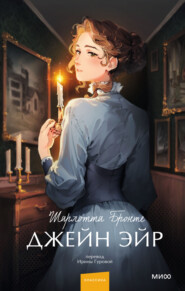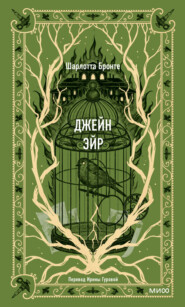По всем вопросам обращайтесь на: info@litportal.ru
(©) 2003-2024.
✖
Shirley
Настройки чтения
Размер шрифта
Высота строк
Поля
“And on their captain,” interposed Shirley.
“What, Captain Keeldar?” inquired Moore, slightly smiling, and not lifting his eyes. The tone of raillery in which he said this was very respectful and suppressed.
“No,” returned Shirley, answering the smile; “Captain Gérard Moore, who trusts much to the prowess of his own right arm, I believe.”
“Furnished with his counting house ruler,” added Moore. Resuming his usual gravity, he went on: “I received by this evening’s post a note from the Home Secretary in answer to mine. It appears they are uneasy at the state of matters here in the north; they especially condemn the supineness and pusillanimity of the mill owners. They say, as I have always said, that inaction, under present circumstances, is criminal, and that cowardice is cruelty, since both can only encourage disorder, and lead finally to sanguinary outbreaks. There is the note – I brought it for your perusal; and there is a batch of newspapers, containing further accounts of proceedings in Nottingham, Manchester, and elsewhere.”
He produced letters and journals, and laid them before Miss Keeldar. While she perused them he took his tea quietly; but though his tongue was still, his observant faculties seemed by no means off duty. Mrs. Pryor, sitting in the background, did not come within the range of his glance, but the two younger ladies had the full benefit thereof.
Miss Keeldar, placed directly opposite, was seen without effort. She was the object his eyes, when lifted, naturally met first; and as what remained of daylight – the gilding of the west – was upon her, her shape rose in relief from the dark panelling behind. Shirley’s clear cheek was tinted yet with the colour which had risen into it a few minutes since. The dark lashes of her eyes looking down as she read, the dusk yet delicate line of her eyebrows, the almost sable gloss of her curls, made her heightened complexion look fine as the bloom of a red wild flower by contrast. There was natural grace in her attitude, and there was artistic effect in the ample and shining folds of her silk dress – an attire simply fashioned, but almost splendid from the shifting brightness of its dye, warp and woof being of tints deep and changing as the hue on a pheasant’s neck. A glancing bracelet on her arm produced the contrast of gold and ivory. There was something brilliant in the whole picture. It is to be supposed that Moore thought so, as his eye dwelt long on it, but he seldom permitted his feelings or his opinions to exhibit themselves in his face. His temperament boasted a certain amount of phlegm, and he preferred an undemonstrative, not ungentle, but serious aspect to any other.
He could not, by looking straight before him, see Caroline, as she was close at his side. It was necessary, therefore, to manoeuvre a little to get her well within the range of his observation. He leaned back in his chair, and looked down on her. In Miss Helstone neither he nor anyone else could discover brilliancy. Sitting in the shade, without flowers or ornaments, her attire the modest muslin dress, colourless but for its narrow stripe of pale azure, her complexion unflushed, unexcited, the very brownness of her hair and eyes invisible by this faint light, she was, compared with the heiress, as a graceful pencil sketch compared with a vivid painting. Since Robert had seen her last a great change had been wrought in her. Whether he perceived it might not be ascertained. He said nothing to that effect.
“How is Hortense?” asked Caroline softly.
“Very well; but she complains of being unemployed. She misses you.”
“Tell her that I miss her, and that I write and read a portion of French every day.”
“She will ask if you sent your love; she is always particular on that point. You know she likes attention.”
“My best love – my very best. And say to her that whenever she has time to write me a little note I shall be glad to hear from her.”
“What if I forget? I am not the surest messenger of compliments.”
“No, don’t forget, Robert. It is no compliment; it is in good earnest.”
“And must, therefore, be delivered punctually.”
“If you please.”
“Hortense will be ready to shed tears. She is tenderhearted on the subject of her pupil; yet she reproaches you sometimes for obeying your uncle’s injunctions too literally. Affection, like love, will be unjust now and then.”
And Caroline made no answer to this observation; for indeed her heart was troubled, and to her eyes she would have raised her handkerchief if she had dared. If she had dared, too, she would have declared how the very flowers in the garden of Hollow’s Cottage were dear to her; how the little parlour of that house was her earthly paradise; how she longed to return to it, as much almost as the first woman, in her exile, must have longed to revisit Eden. Not daring, however, to say these things, she held her peace; she sat quiet at Robert’s side, waiting for him to say something more. It was long since this proximity had been hers – long since his voice had addressed her; could she, with any show of probability, even of possibility, have imagined that the meeting gave him pleasure, to her it would have given deep bliss. Yet, even in doubt that it pleased, in dread that it might annoy him, she received the boon of the meeting as an imprisoned bird would the admission of sunshine to its cage. It was of no use arguing, contending against the sense of present happiness; to be near Robert was to be revived.
Miss Keeldar laid down the papers.
“And are you glad or sad for all these menacing tidings?” she inquired of her tenant.
“Not precisely either; but I certainly am instructed. I see that our only plan is to be firm. I see that efficient preparation and a resolute attitude are the best means of averting bloodshed.”
He then inquired if she had observed some particular paragraph, to which she replied in the negative, and he rose to show it to her. He continued the conversation standing before her. From the tenor of what he said, it appeared evident that they both apprehended disturbances in the neighbourhood of Briarfield, though in what form they expected them to break out was not specified. Neither Caroline nor Mrs. Pryor asked questions. The subject did not appear to be regarded as one ripe for free discussion; therefore the lady and her tenant were suffered to keep details to themselves, unimportuned by the curiosity of their listeners.
Miss Keeldar, in speaking to Mr. Moore, took a tone at once animated and dignified, confidential and self-respecting. When, however, the candles were brought in, and the fire was stirred up, and the fullness of light thus produced rendered the expression of her countenance legible, you could see that she was all interest, life, and earnestness. There was nothing coquettish in her demeanour; whatever she felt for Moore she felt it seriously. And serious, too, were his feelings, and settled were his views, apparently, for he made no petty effort to attract, dazzle, or impress. He contrived, notwithstanding, to command a little; because the deeper voice, however mildly modulated, the somewhat harder mind, now and then, though involuntarily and unintentionally, bore down by some peremptory phrase or tone the mellow accents and susceptible, if high, nature of Shirley. Miss Keeldar looked happy in conversing with him, and her joy seemed twofold – a joy of the past and present, of memory and of hope.
What I have just said are Caroline’s ideas of the pair. She felt what has just been described. In thus feeling she tried not to suffer, but suffered sharply nevertheless. She suffered, indeed, miserably. A few minutes before her famished heart had tasted a drop and crumb of nourishment, that, if freely given, would have brought back abundance of life where life was failing; but the generous feast was snatched from her, spread before another, and she remained but a bystander at the banquet.
The clock struck nine; it was Caroline’s time for going home. She gathered up her work, put the embroidery, the scissors, the thimble into her bag. She bade Mrs. Pryor a quiet good night, receiving from that lady a warmer pressure of the hand than usual. She stepped up to Miss Keeldar.
“Good night, Shirley!”
Shirley started up. “What! so soon? Are you going already?”
“It is past nine.”
“I never heard the clock. You will come again tomorrow, and you will be happy tonight, will you not? Remember our plans.”
“Yes,” said Caroline; “I have not forgotten.”
Her mind misgave her that neither those plans nor any other could permanently restore her mental tranquillity. She turned to Robert, who stood close behind her. As he looked up, the light of the candles on the mantelpiece fell full on her face. All its paleness, all its change, all its forlorn meaning were clearly revealed. Robert had good eyes, and might have seen it if he would; whether he did see it, nothing indicated.
“Good night!” she said, shaking like a leaf, offering her thin hand hastily, anxious to part from him quickly.
“You are going home?” he asked, not touching her hand.
“Yes.”
“Is Fanny come for you?”
“Yes.”
“I may as well accompany you a step of the way; not up to the rectory, though, lest my old friend Helstone should shoot me from the window.”
He laughed, and took his hat. Caroline spoke of unnecessary trouble; he told her to put on her bonnet and shawl. She was quickly ready, and they were soon both in the open air. Moore drew her hand under his arm, just in his old manner – that manner which she ever felt to be so kind.
“You may run on, Fanny,” he said to the housemaid; “we shall overtake you.” And when the girl had got a little in advance, he enclosed Caroline’s hand in his, and said he was glad to find she was a familiar guest at Fieldhead. He hoped her intimacy with Miss Keeldar would continue; such society would be both pleasant and improving.
Caroline replied that she liked Shirley.
“And there is no doubt the liking is mutual,” said Moore. “If she professes friendship, be certain she is sincere. She cannot feign; she scorns hypocrisy. And, Caroline, are we never to see you at Hollow’s Cottage again?”
“I suppose not, unless my uncle should change his mind.”
“Are you much alone now?”
“Yes, a good deal. I have little pleasure in any society but Miss Keeldar’s.”
“Have you been quite well lately?”
“Quite.”
“You must take care of yourself. Be sure not to neglect exercise. Do you know I fancied you somewhat altered – a little fallen away, and pale. Is your uncle kind to you?”
“Yes; he is just as he always is.”
“Not too tender, that is to say – not too protective and attentive. And what ails you, then? Tell me, Lina.”
“Nothing, Robert.” But her voice faltered.

















